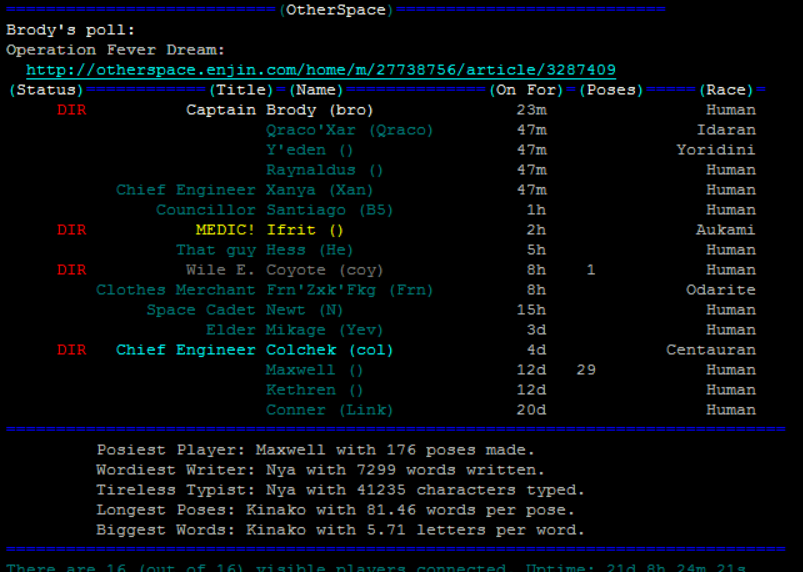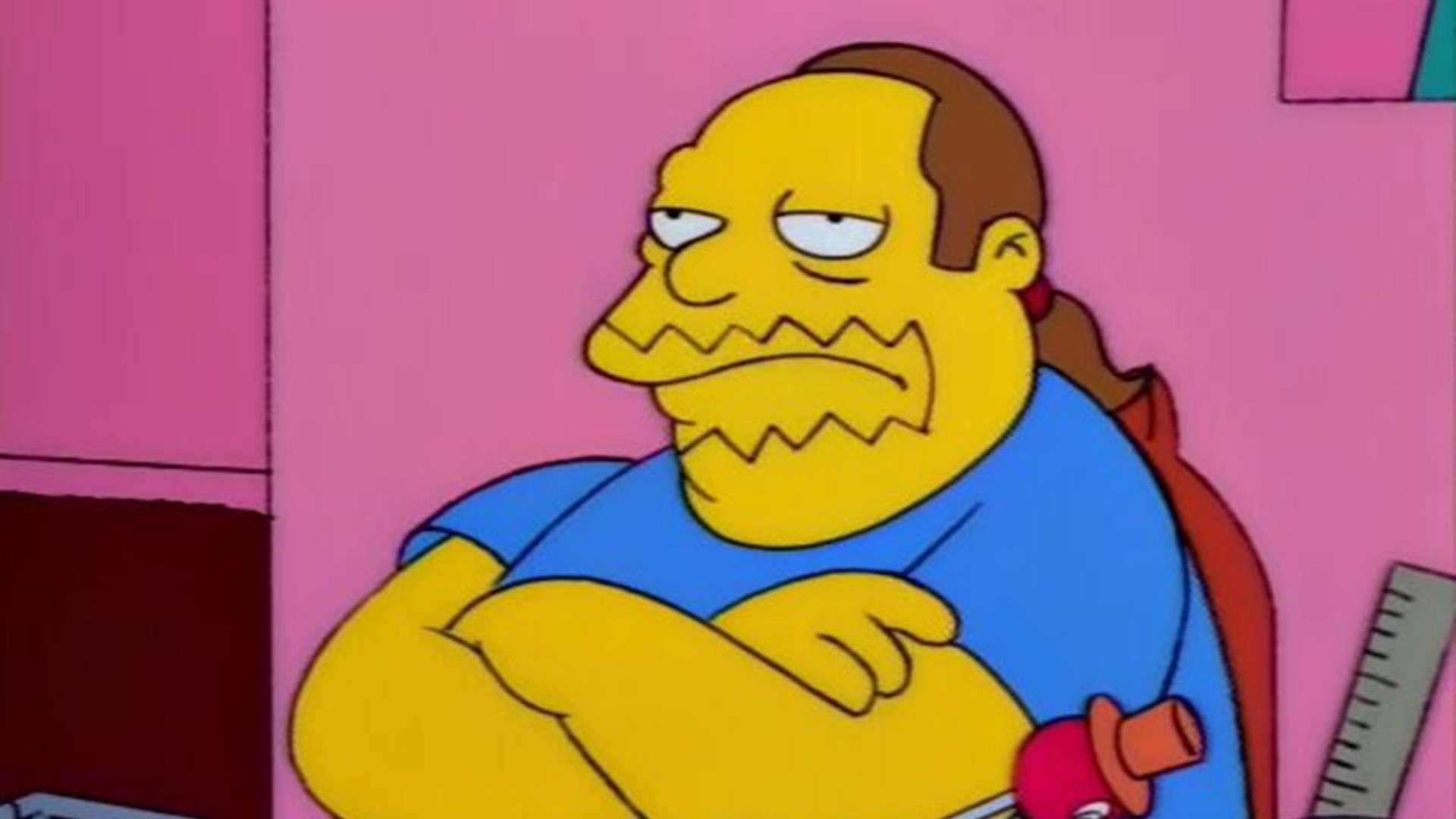Back in the early 21st Century, Discworld creator Terry Pratchett took the time to answer some questions for the crew at OtherSpace. Here’s how the Q&A went:
Startripper asks: How did you develop your own writing style?
Terry Pratchett answers: I don’t think it is something that you consciously develop. You write, and if you are any good, your own style happens. But it you want to think of it as some kind of mental body-building exercise, then reading widely is a good start.
Startripper asks: What do you believe is the central element, if there is one, to a novel? Would you advocate plot over description, for example? Perhaps characterization above something else?
Terry Pratchett answers: I don’t agree that there is one free-standing ‘central element’. Plot and character are both vital, description in the classic ‘it was a big mountain’ sense can be kept to a minimum except when its really required. My belief is that the physical ‘description’ of a character, for example, can be built in the reader’s mind by careful attention on the part of the author to the character’s speech and actions.
Startripper asks: Do you believe a good background in some other field, such as history, can increase the quality of a book?
Terry Pratchett answers: Not automatically. A good historian might well be at a loss when it’s time to bring their skills to bear on the discipline of fiction writing. They might even be hindered. But it’s vital for a novelist to have a good general background in practically everything.
Startripper asks: Do you think a novel should bring across a point or idea, or is it simply to entertain?
Terry Pratchett answers: I’ll simply point out that if you don’t take the reader with you all the way to the last page, then *anything else* you might have wanted to do on the way will get lost.
Startripper asks: When and how did you get the idea for Discworld? Did it start out the same way it ended up, or was there a process of fine tuning the idea?
Terry Pratchett answers: It developed.
Kalouri asks: In your stories, we rarely see an excess of descriptive details about the individual characters and yet as readers, we can *see* these characters in our own minds. Do you think economy of detail (giving just enough to let us build our own pictures) serves to make the worlds you create belong more to the readers? Is that something you aim for?
Terry Pratchett answers: One of the dumbest pieces of writing was in a popular SF book and consisted of two pages about the physical description of a character. What a waste of trees. Who gives a shit about the guy’s hair colour? But one careful piece of dialogue can draw you a picture. Do it right, and every reader will have their own, clear mental picture. I genuinely think that all that is required, certain when dealing with people, is just enough of a description to give the reader enough to work on.
Wes Platt asks: What we do at OtherSpace is probably best described as collaborative interactive fiction. You’ve collaborated with Neil Gaiman, for example, on Good Omens. What are the benefits and handicaps of collaboration, from your point of view? How do you balance the story you want to tell, the way you want to tell it, with the wishes and desires of your partner?
Terry Pratchett answers: Good Omens was a one-off. We knew and respected one another and we both had/have the same kind of mental universe — it was rare for either of us to suggest something (like the Wicked Bibles, for example) which was unfamiliar to the other one. There was no shouting — we pretty much agreed, throughout, on how things went. We did it for fun, too, and that helped. Benefits? There’s someone else in the world that’s thinking about exactly the same things as you. Drawbacks? You each do 90% of the work.
Wes Platt asks: We’ve heard of at least one online text-based game set in the Discworld realm. What do you think of the creation of multi-user games based on these worlds that you’ve created? Do you worry that they might take too many liberties?
Terry Pratchett answers: I’m unfazed by them. How can they take liberties? The books are real, the games are…well, games.
Wes Platt asks: Are any new Discworld computer games or other products in the offing?
Terry Pratchett answers: No new computer games, but *The Last Hero* will be a collaboration with Paul Kidby. It started as a 30,000 word short story; he’s illustrating it, and I’m rewriting the story at the same time. The hope and intention is that the pictures become a part of the narrative, rather that just nice page furniture. There are some movies deals but, then, there always are.
Wes Platt asks: When you look back at the body of your work, is there any one that stands out, in your mind, as being the one *you* enjoyed writing the most so far? Why?
Terry Pratchett answers: Johnny and the Dead. It wrote itself, and I wouldn’t change a word.



